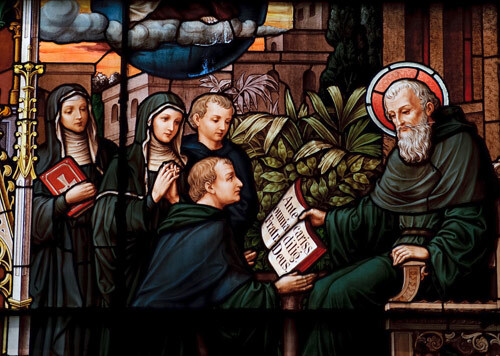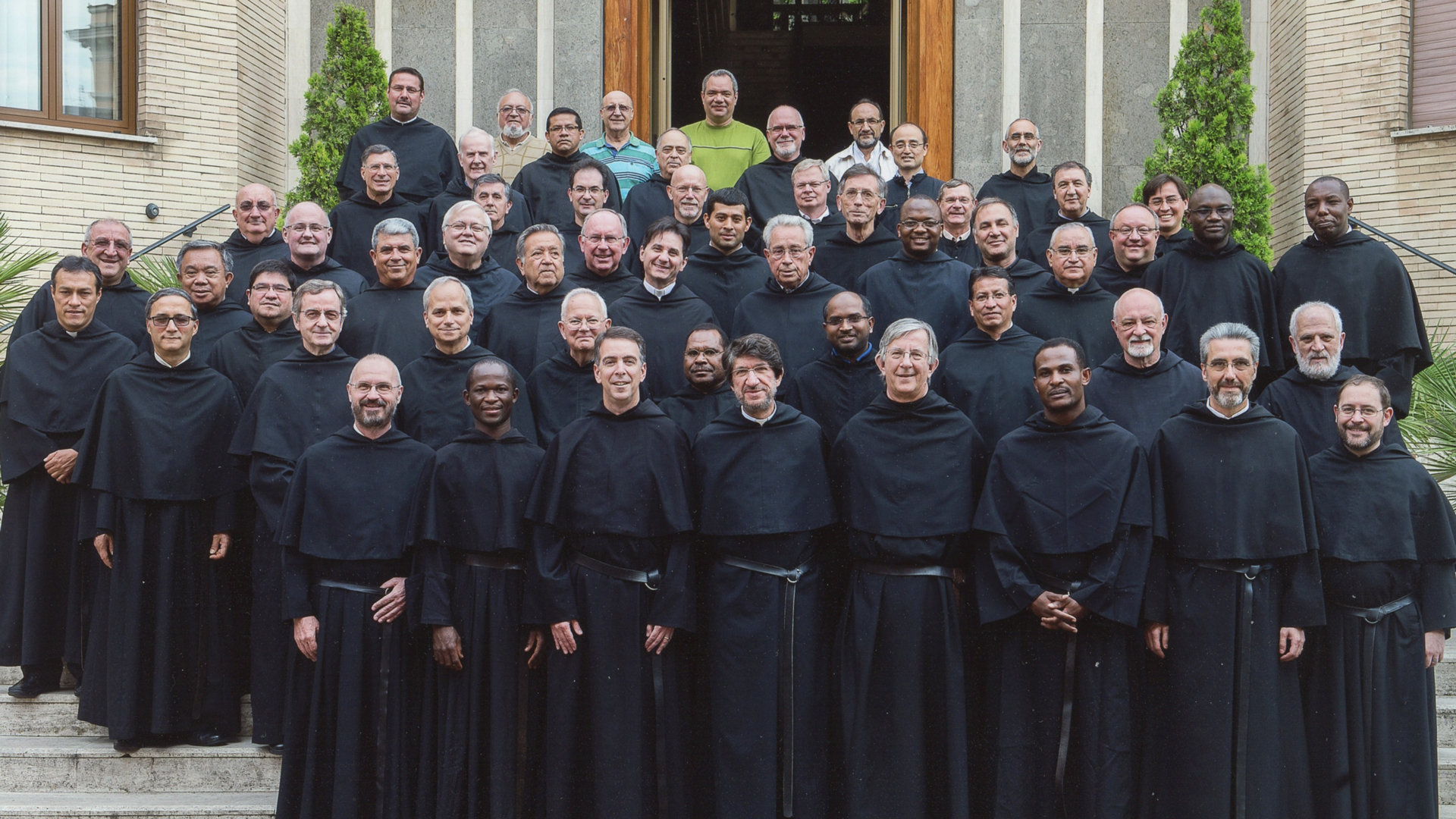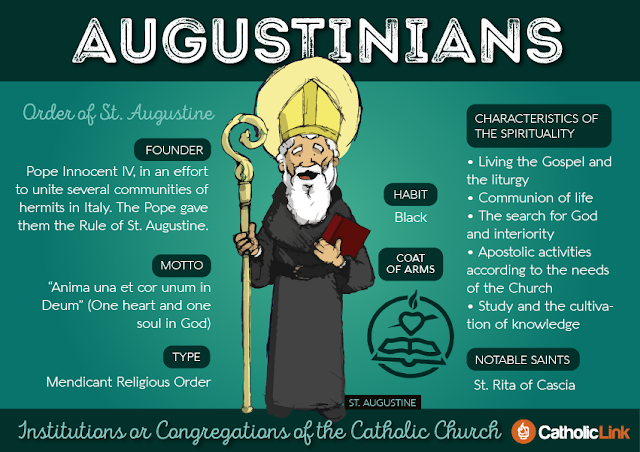Did Augustine found the augustinians?
To avoid any misunderstanding that Augustine is the founder of this order, which other religious usually do, we would like to point out that the Church Father Augustine lived in North Africa from 354 to 430. He was born in Thagaste and died in Hippo ( Annaba, Algeria). It would not be until 1256 that Pope Alexander IV founded the Order in Rome. After his conversion in 386, Augustine would be baptized by Ambrose, bishop of Milan. His mother Monica was there. His close friend Alypius and his young son Adeodatus were also baptized at the same time as him. Like his conversion, his baptism was not a lonely activity. Together with Monica, they already shared everything in a community of spiritual goods, as if a prophetic call emanated for the later development of the Augustinian life. Indeed, in North Africa there would be a proliferation of monasteries of Augustinian signature, for which Augustine also wrote a Rule, the oldest in the Latin Church by the way. The purpose of this Rule was simply community building. Those who lived together in harmony and love would form a spiritual house in which God takes up residence. Whoever lives in discord drives God away from his house. To be able to live in such a house, there are two vital conditions: the community of goods, both material and spiritual goods. In addition to material possessions, spiritual goods must also provide growth to the community. Anyone who exchanges communis for privatus returns to society where the great exist above the small, the rich above the poor. From the beginning of the Rule, Augustine places full emphasis on monastic abstinence, in which everything must become common. Anyone who has the gift of a good mind or a pleasant character should not want to privatize this, thereby increasing their own weight in community life. This life in community is a diaconia, a service and not a weapon of power. Such a life in community can quickly generate a lot of money and possessions, which is why Augustine will also prescribe that people should live frugally and help the poor. By sharing with others, love does not become smaller but greater, Augustine tells his church people.

Spreading of Augustine´s work
After his conversion and baptism, Augustine was also quickly drawn to the pastoral life, even though his desire for the contemplative life remained. Prayer and study remained his dream in bishop life, even though it would often be night work. The apostolate will force him to travel to the other dioceses, where the Church is sometimes in danger due to the erroneous teachings of Donatists and Pelagians. The former tear apart the one and universal church, the latter want to privatize God's gift of grace as a possession.
When the Vandals surrounded Hippo, Augustine lay on his deathbed with the penitential psalms hung around him at his request. In the long term, the church would also die in North Africa, the many Augustinian communities would emigrate to Southern Europe. Historically speaking, it is virtually impossible to draw a certain line as to which monasteries of Africa survived on this new continent. When Alexander IV wanted to bring Augustine's heremites together into an Order, they had in fact already started in North Africa, but the continuity runs along an invisible path. Augustine, however, lived on in his many manuscripts that were widely distributed. Legally, the Augustinians were now also visible in the history of the church and in the culture of Europe at the time. Who has never heard anything from Augustine in his Confessions, in the Trinity, in the City of God, in his small Treatises such as the Soliloquies, in his Commentaries on the Gospel of John and in the First Epistle of John, in his many sermons... of which one and only another by the Augustinian Institute and the Augustinian Historical Institute of Leuven has been translated into Dutch. Augustinianism also arose in the same continent, which provided insight into the theological theological activities of the Church Father. The magazine Augustiniana and other internationally known magazines can testify to this.

Augustine as a spiritual home
Thanks to the life of Augustine, who with his friends chose a contemplative way of life in the parental home of Thagaste and who would continue in Hippo as a priest and bishop, the monk-bishop ultimately chose the mixed path of an active and contemplative monastic life, not so exceptional in those days.
Following Augustine, today's Augustinians still try to pursue that mixed path in which community building is central as an end in itself. Building a house of which Christ is the cornerstone, not a house that is used for a community and is therefore incidental, but a community that wants to be spiritually central as the house where God resides, the body of Christ.

